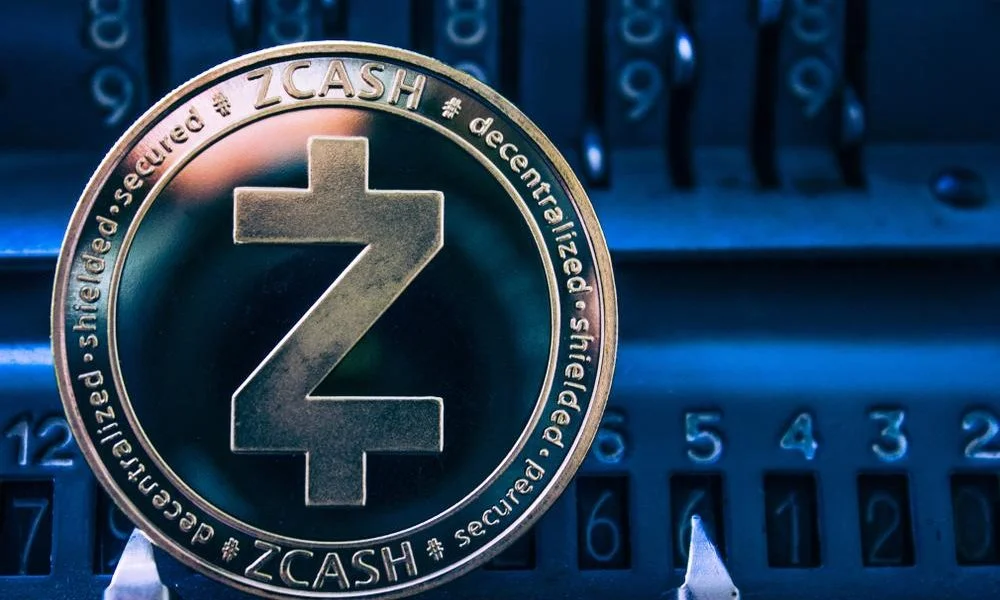Zcash (ZEC) stands out as a pioneering privacy-focused cryptocurrency, leveraging cutting-edge cryptography to offer users unparalleled control over their financial privacy. Launched in 2016, Zcash builds on Bitcoin’s foundation but introduces zero-knowledge proofs—specifically zk-SNARKs—to enable fully private transactions, setting it apart in the blockchain landscape. This article provides an in-depth look at Zcash’s core features, the mechanics of its privacy technology, and the distinction between its transparent and shielded transactions. It explores Zcash’s role in the privacy coin ecosystem, its use cases in cross-border payments and decentralized finance (DeFi), and its market position as of March 2025. Finally, it analyzes the benefits, risks, challenges, and opportunities for Zcash as demand for financial privacy grows in an increasingly surveilled digital world.
Core Features: Zero-Knowledge Proofs and zk-SNARKs
Zcash was created by the Electric Coin Company (ECC), founded by Zooko Wilcox, with contributions from cryptographers like Matthew Green and the Zerocoin team. Launched on October 28, 2016, it forked Bitcoin’s codebase but introduced a revolutionary privacy layer using zero-knowledge proofs, specifically zk-SNARKs (Zero-Knowledge Succinct Non-Interactive Arguments of Knowledge).
- How zk-SNARKs Work:
zk-SNARKs allow Zcash to verify transactions without revealing sensitive details—sender, receiver, or amount. This cryptographic technique proves a statement (e.g., “this transaction is valid”) without disclosing the underlying data. Key aspects include:- Zero Knowledge: The prover demonstrates knowledge of a secret without leaking it.
- Succinctness: Proofs are small and quick to verify, ensuring efficiency.
- Non-Interactivity: No back-and-forth is needed between prover and verifier, fitting blockchain’s decentralized nature.
In Zcash, zk-SNARKs encrypt transaction data into a “shielded” format, stored on a public ledger yet indecipherable without the private view key.
- Other Features:
- Proof-of-Work (PoW): Like Bitcoin, Zcash uses PoW with the Equihash algorithm, optimized for GPU mining to resist ASIC dominance (though ASICs later emerged).
- Supply: Zcash mirrors Bitcoin’s 21 million coin cap, with ~15.5 million ZEC in circulation by March 2025.
- Halvings: Block rewards halve every four years (first in 2020 from 12.5 to 6.25 ZEC), reinforcing scarcity.
Zcash’s privacy-first design distinguishes it from transparent blockchains like Bitcoin and Ethereum, offering a spectrum of transaction options.
Transparent vs. Shielded Transactions
Zcash uniquely offers users a choice between transparent and shielded transactions, balancing privacy with interoperability:
- Transparent Transactions:
- Similar to Bitcoin, these reveal sender, receiver, and amount on the public ledger.
- Use “t-addresses” (starting with “t”), compatible with most wallets and exchanges.
- Account for ~90% of ZEC transactions in 2025 due to ease of use and regulatory compliance demands.
- Shielded Transactions:
- Leverage zk-SNARKs to conceal all details, using “z-addresses” (starting with “z”).
- Require more computational resources (e.g., 1–2 seconds to generate on modern hardware) and higher fees ($0.001 vs. $0.0001 for transparent).
- Only ~10% of transactions are shielded, per ECC data, reflecting limited adoption by casual users.
- Comparison:
- Privacy: Shielded transactions offer full anonymity; transparent ones do not.
- Speed/Cost: Transparent transactions are faster and cheaper, while shielded ones trade efficiency for privacy.
- Adoption: Transparent dominates due to exchange support, but shielded use grows among privacy advocates.
This dual system lets users tailor privacy to their needs, a flexibility unmatched by fully private coins like Monero.
Benefits and Risks of Private Transactions with Zcash
Benefits:
- Financial Privacy:
Shielded transactions protect users from surveillance, safeguarding personal data in an era of mass data collection by governments and corporations. - Selective Transparency:
Users can share view keys to audit transactions (e.g., for tax reporting), blending privacy with accountability. - Cross-Chain Potential:
Zcash’s privacy tech could integrate with DeFi, enhancing anonymity in smart contract ecosystems.
Risks:
- Regulatory Backlash:
Privacy coins face scrutiny for enabling illicit activity (e.g., money laundering), with exchanges like Coinbase delisting ZEC in some regions by 2025. - Adoption Barriers:
Shielded transactions’ complexity and resource demands deter mainstream use, limiting Zcash’s reach. - Cryptanalysis Risks:
Though zk-SNARKs are robust, flaws in implementation or quantum computing advances could theoretically compromise privacy (no such threats have materialized by 2025).
Zcash balances powerful privacy with practical trade-offs, appealing to niche users while navigating broader challenges.
Zcash’s Role in the Privacy Coin Ecosystem
Zcash is a leader among privacy coins—alongside Monero (XMR) and Dash—each with distinct approaches:
- Vs. Monero:
- Monero uses ring signatures and stealth addresses for mandatory privacy, while Zcash’s opt-in model offers flexibility.
- Monero’s $2.5 billion market cap (March 2025) outpaces Zcash’s $500 million, reflecting broader adoption.
- Vs. Dash:
- Dash’s optional PrivateSend is less robust than zk-SNARKs, positioning Zcash as more privacy-focused.
Zcash’s zk-SNARKs set a cryptographic benchmark, influencing projects like Ethereum’s zk-rollups and privacy layers in DeFi. Its role is both technical (advancing zero-knowledge proofs) and cultural (championing user autonomy).
Use Cases: Cross-Border Payments and DeFi
- Cross-Border Payments:
- Zcash’s low fees (~$0.0001–$0.001) and ~2.5-minute block time enable fast, cheap transfers compared to Bitcoin ($1–$5, 10 minutes).
- Shielded transactions add privacy for remittances or business settlements, appealing in regions with strict capital controls (e.g., Venezuela).
- Adoption remains niche, with ~500 merchants accepting ZEC via CoinPayments in 2025, trailing Bitcoin’s broader uptake.
- Decentralized Finance (DeFi):
- Zcash’s privacy could enhance DeFi by anonymizing lending, trading, or staking, but its lack of native smart contracts limits direct integration.
- Wrapped Zcash (WZEC) on Ethereum bridges this gap, with ~$10 million in DeFi TVL by 2025 (e.g., via Uniswap pools).
- Future upgrades (e.g., Halo 2, reducing zk-SNARK overhead) could deepen DeFi ties.
Zcash’s privacy focus suits specific use cases, though it lags scalable platforms like Ethereum or Solana in DeFi adoption.
Position in the Cryptocurrency Market
- Market Cap: $500 million (March 2025), ranking ZEC ~50th.
- Circulating Supply: 15.5 million of 21 million ZEC.
- Price: ~$32, with an all-time high of $5,941 (Oct. 2016, early hype) and low of $20 (Dec. 2022).
- Daily Volume: $40–$60 million, per CoinMarketCap.
Zcash trails Bitcoin ($1.2 trillion) and privacy rival Monero but holds steady as a niche player, buoyed by privacy demand and technical credibility.
Challenges and Opportunities
Challenges:
- Regulatory Pressure:
Global crackdowns on privacy coins—e.g., Japan’s 2018 exchange bans and U.S. KYC rules—threaten Zcash’s accessibility. Delistings by major platforms reduce liquidity. - Adoption Hurdles:
Shielded transactions’ complexity and limited wallet support (e.g., Ledger, Trezor) hinder mainstream use. Only 10% of ZEC is shielded, per ECC. - Competition:
Monero’s mandatory privacy and Ethereum’s zk-rollups challenge Zcash’s niche, while scalable chains like Solana outpace it in DeFi.
Opportunities:
- Growing Privacy Demand:
Rising surveillance (e.g., CBDCs, data breaches) boosts interest in privacy coins. Zcash’s zk-SNARKs position it as a premium option. - Technological Innovation:
Halo 2 (2020) eliminated trusted setups, and future upgrades could lower shielded transaction costs, broadening adoption. - DeFi Integration:
Expanding WZEC and Cosmos/Ethereum bridges could tap DeFi’s $100 billion TVL, enhancing Zcash’s utility.
Expert Insights
Zooko Wilcox calls Zcash “a public good for financial freedom,” predicting growth as privacy becomes a “human right.” Analyst Andreas Antonopoulos praises zk-SNARKs’ elegance but notes adoption lags due to usability. On X, users laud Zcash’s tech but lament regulatory risks, with some eyeing a $50–$100 price by 2027 if privacy trends accelerate.


